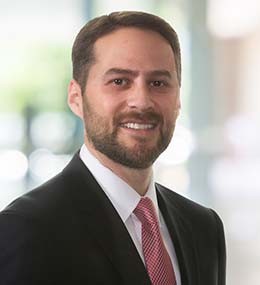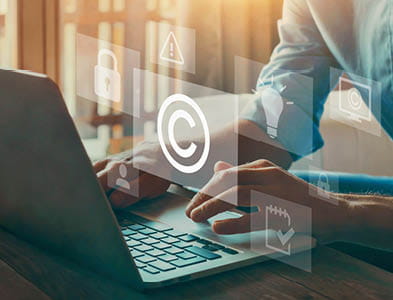Stout Expert Profile Scott Weingust
Learn More About Our IP PracticeStout Expert Profile Scott Weingust
Learn More About Our IP PracticeStout Managing Director Scott Weingust discusses his role as the leader of Stout's IP Valuation practice, what led him to a career in IP, how he sees the world of IP changing in the future, and more.

Scott Weingust is the leader of Stout Intellectual Property (IP) Valuation practice. With 25 years of experience in this field, Scott has completed over 100 speaking engagements, written over 30 published pieces, and completed his largest valuation of over $2 billion. We spoke to Scott about his responsibilities as a leader in this practice, the most interesting project he has worked on, the future of IP, and his role as an adjunct professor.

Role at Stout |
Intellectual Property Valuation Expert |
|
|---|---|---|
Other Roles |
Adjunct Professor, DePaul University College of Law |
|
Areas of Expertise |
Intellectual Property Valuation |
|
Number of Publications |
30+ |
|
Education |
B.A., Economics, B.A., International Relations, Certificate in International Business Studies, |
What types of matters do you work on?
I work on matters for which clients, courts, taxing authorities, and others are seeking to understand what certain IP assets are worth, whether articulated as a dollar amount, royalty rate, or other licensing terms.
What types of clients do you work with? How do you provide value to them?
I perform valuations for multi-national corporations, middle-market companies, start-ups, entrepreneurs, investment firms, lenders, law firms, and non-profits, among others. I take a very practical approach towards helping clients with their IP needs. My focus is providing clients with a defensible analysis that is easy for stakeholders to understand and leaves the audience of the valuation feeling as though they can rely on our conclusions.
What types of assets do you value?
Patents, trademarks, copyrights, trade secrets, publicity rights (i.e., name, image, and likeness), software, domain names, licensing agreements, and other intangible assets.
As the leader of the firm’s IP Valuation practice, what are your responsibilities?
I am ultimately responsible for most of the IP valuation projects that we execute at the firm. On a daily basis, I help Stout’s large group of IP valuation professionals select and implement appropriate valuation methods, choose inputs and assumptions for our analyses, solve technical challenges, write our valuation reports, and explain valuation conclusions to our clients. I also play a key role in developing the IP valuation technical knowledge and skills of our team through formal training and on-the-job teaching. Finally, I spend a lot of time giving presentations, writing articles, and networking at industry events to promote Stout’s IP valuation services.
What has been the most interesting project you have worked on?
Several years ago, I was part of a team at Stout that calculated damages in a patent infringement matter called Ericsson v. D-Link, et al. The dispute related to D-Link’s and other companies’ infringement of certain patents owned by Ericsson that were essential to the Wi-Fi standard. The case represented the first time a U.S. jury determined what is generally referred to as a fair, reasonable, and non-discriminatory (FRAND) royalty rate for standard essential patents (SEPs). Many of the unique arguments we developed for our damages analysis were accepted by the Federal Circuit, and the case has since been widely referenced by courts and others who focus on FRAND royalty rates for SEPs. This project was a springboard for my development of a specialty in valuing, and determining FRAND licensing terms, for SEPs.
What led you to focus your career in IP?
When I joined Deloitte just a few years after completing my university degree, I met a partner who had focused on IP matters for much of his career. He introduced me to the world of IP, including valuation, damages, and licensing matters, and I was enamored with learning about and working with cutting-edge technologies, world-renowned brands, and famous works of art.
What has been the most rewarding part of your career?
I enjoy being challenged on a daily basis to value those assets that most valuation professionals consider the hardest to value. There is great satisfaction in delivering a reliable valuation analysis to a client to help them achieve their goals.
How do you see IP Valuation – or IP as a whole – changing in the next 5-10 years?
One of the major trends I see beginning now, and which I think will be a huge part of the IP world going forward, is the focus on valuing celebrities’ right of publicity (i.e., name, image, and likeness). With the rise of social media, celebrities have unprecedented opportunities to monetize their right of publicity and, as a result, the value of these rights is increasing rapidly.
There has recently been a significant focus on the value of these assets in the context of trust and estate planning and compliance, particularly given high-profile issues involving the value of these assets associated with the estates of Michael Jackson, Whitney Houston, and others. Not only are taxing authorities wrestling with the question of what these assets are worth for estate tax compliance once a celebrity has passed, we are seeing celebrities and their advisors interested in using these assets to execute sophisticated tax planning strategies where, for example, publicity rights are transferred into special purpose legal entities and interests in those legal entities can be gifted to heirs.
In addition to a focus on right of publicity value for trust and estate issues, there has been (and I expect will continue to be) a large amount of litigation related to the unauthorized use of celebrities’ right of publicity, particularly on social media platforms.
Finally, the recent change in rules allowing college athletes to profit from their name, image, and likeness is another area where right of publicity valuation issues may become increasingly important.
How has your role as an Adjunct Professor shifted your perspective of your career? What advice would you give to people early in their career that are pursuing a similar career path?
Teaching IP valuation to future lawyers has been a great challenge and a lot of fun. IP valuation is generally premised upon a core educational foundation in finance, economics, and accounting. Most law school students do not have a background in these courses of study, so teaching IP valuation to people with primarily liberal arts backgrounds has caused me to rethink my approach toward teaching the subject. Ultimately, learning how to explain complex IP valuation concepts to students without the traditional educational foundation typically found in the valuation industry has made me a better client service professional. I can better explain valuations to client personnel, and I am now a better testifier in litigation matters where I apply the teaching skills I’ve acquired to my presentation to juries, mediators, and judges.
You write and speak very frequently on topics related to IP and IP Valuation. Is there a particular piece or presentation that sticks out to you? What do you like most about it?
I’m not sure there is a particular presentation or topic that sticks out above the others. I just really enjoy talking about the topic that I have made my life’s work. I find IP valuation to be really interesting and people often voice interest in understanding how we do it. It’s fun to provide insights into something I am passionate about to people who aren’t familiar with the topic and have them walk away with some new knowledge.
What interests do you have outside of work?
At home I have a wife and two kids (15-year-old boy and 13-year-old girl), along with a dog and cat. When we’re not busy with work, school, and all the kids’ extracurricular activities, we like to spend our time outside. Most of our family vacations are spent hiking and camping, primarily in Colorado. On a day-to-day basis, I enjoy running for exercise and I am a rabid fan of the University of Wisconsin’s basketball and football teams. Although I’ve lived in Chicagoland for more than 20 years, I was born and raised in New York City, and I try to get back as often as possible to reconnect with old friends and enjoy a good slice of pizza.
What artist/genre of music/playlist is your favorite to listen to while working?
I actually prefer not to listen to anything while working as I find it distracting. However, my kids are both avid musicians who, between them, play the piano, bassoon, saxophone, and tuba on almost a daily basis, so it feels like there is constantly some sort of music being played in my house. Having been working from home over the last year and a half due to the pandemic, I’ve had a chance to hear more of their practice and performance, which has been fun. If you have a Zoom call with me during a normal workday, you should not be surprised to hear someone playing an instrument in the background.




